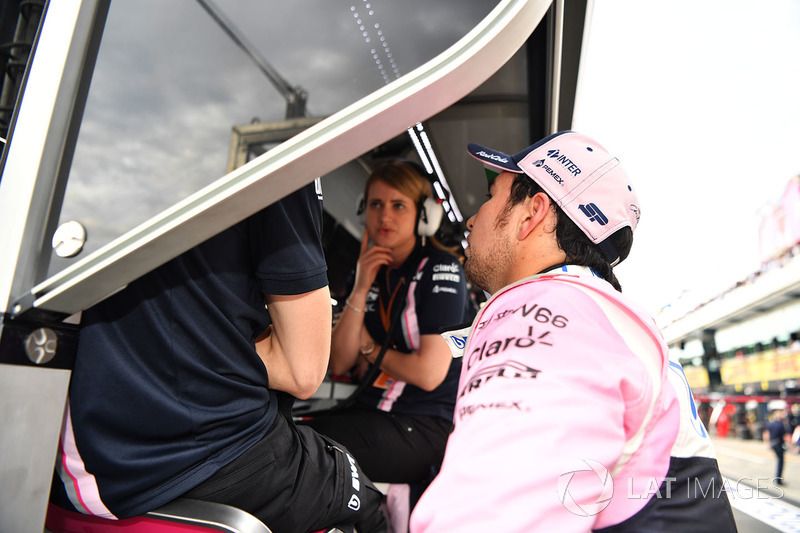McLaren has been the form team since a major car upgrade in May brought Lando Norris and Oscar Piastri their first race victories. But despite several chances to add to that tally over the summer, decisions on strategy have cost them.
At Silverstone, for example, the wrong call on when to pit and a poor tyre choice for the last stint cost Norris the win and favoured Mercedes’ Lewis Hamilton.
Speaking on the James Allen on F1 podcast, Sky Sports F1 TV pundit and former F1 strategist Bernie Collins determined that McLaren needs to be more ruthless and not make high-pressure strategy decisions ’by committee’.
“I think that’s part of the issue with McLaren. When you’re asking a driver continuously what tyre he wants, you slow down the decision process naturally,“ said Collins.
“The more independence you can have for the people making those decisions, the quicker those decisions will be naturally. And you know, a bit of the Norris stop lap thing is when he’s so focused on whether it should be a soft, medium or hard tyre, he’s not thinking whether it’s intermediate or dry.
«Actually, the first question needed to be, ‘Which is the right lap to put on the dry?’, and let someone else deal with the other decision. And those are the teams that work the best together, when you’ve got this trust and independent thinking.”
Collins also doesn’t buy the line from McLaren this summer that they are still ‘learning to win’ after many years of being uncompetitive since the Hamilton/Jenson Button era in the early 2010s.

Simon Lazenby, Danica Patrick, Bernie Collins, Sky F1 Presenters
Photo by: Simon Galloway / Motorsport Images
“Not really,» she reflects when asked on the topic. «Strategy in the midfield is as tough as strategy at the front.
“Some will agree or disagree, but you’re still fighting for every position, every point. McLaren in the past have been very good at strategy. I think there’s a little bit of movement of people there, a little bit on their pit wall.
«The people that you’re playing against change. So as you’re a midfield team or a lower midfield team, you’re competing against certain teams and you get to know how they react and how aggressive they might be.
“And as you move up, that changes and obviously the level you’re fighting against changes. I spent every race that I worked on analyzing every decision that everyone else made. And I feel like I had a pretty good idea why Red Bull were making decisions, why Mercedes were.
«I don’t doubt that McLaren are doing the same. As you move forward, this is what you’ve been waiting for. This is what the whole team have been waiting for, this opportunity.”
In a wide-ranging interview, Collins also opines on why the role of chief race strategist is one that women have excelled at in the last decade, whereas no women have reached the upper echelons of race engineering.
“At one point close to 50 % of the pit walls had a female strategist,» she said.
“I guess there are a few (reasons); the range of backgrounds that can feed into strategists. I don’t think there are enough females in engineering. Therefore to get the 10 best on the pit wall, it’s a struggle to have those as females. There are probably more strategists doing software and mathematics and those types of things and then more females and therefore that filters into the pit wall.

Sergio Perez, Force India and Bernie Collins, Force India Strategy Engineer
Photo by: Sutton Images
«I think some of the aspects of decision-making and pressure maybe lend themselves more to some of the females that are there.
“We don’t have any female race engineers and hopefully that is just a matter of time. But I think the time that you put into becoming that voice for the driver is quite a commitment to F1. People are sort of 10, 15 years in F1 before they reach that point. And maybe by that point, a lot of women have stepped away for other reasons. Whereas in strategy, I think that route is shortened.”








